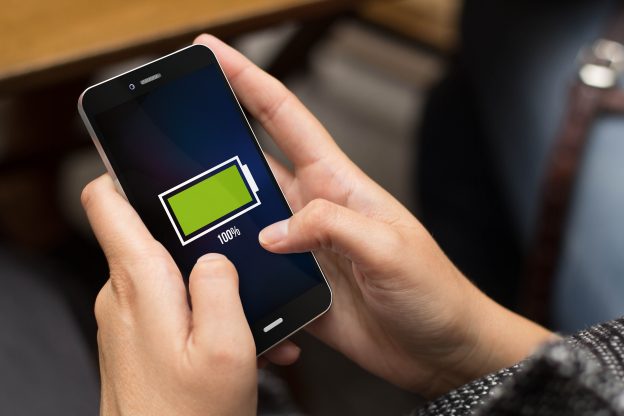
Nanyang Technological University (NTU) in Singapore has developed a biodegradable zinc battery as thin as paper with the potential to provide new battery options for flexible and wearable electronic devices in the future. Recycling is also easy because when the battery runs out, just bury it in soil and let it decompose on its own.
The manufacturing process of the zinc battery developed by NTU is relatively simple. First, the manganese ink, zinc, and conductive carbon are printed on reinforced paper with screen printing technology to form electrodes. Then, after soaking in electrolyte, the electrodes are coated with a layer of gold to increase the conductivity of the battery. In the end, a 0.4 mm thick 4×4 cm paper battery is produced.
This new paper battery can power a small electric fan for 45 minutes. The team believes that it can be applied to folding smart phones, GPS tracking stickers, or electronic heath tracking devices such as electronic skin and medical sensors.
At present, most electronic products are equipped with lithium-ion batteries. Although different types of lithium-ion batteries differ in battery capacity, stability, and price due to different cathode materials, battery size is usually related to storage capacity. Lithium-ion batteries are not soft and flexible and cannot be used in bendable equipment.
The team pointed out that no matter how the battery is bent or distressed, the power supply will not be interrupted. If you want to make a larger battery, you can simply print and cut it to size. NTU School of Physical and Mathematical Sciences professor, Fan Hongjin indicated that the versatility, durability, and efficacy of these batteries are very suitable for integration into various flexible electronic devices.
In addition, the researchers stated, compared with common lithium-ion batteries, these new batteries are much cheaper, costing one-tenth as much as lithium batteries. This is mainly because there is more manganese and zinc in the earth’s crust than lithium, naturally reducing cost. After the battery is exhausted, just bury the battery directly in soil and it will completely decompose within one month, so there is no need to worry about environmental pollution. ,
However, this battery technology is still in the early stages of development and requires further optimization before large-scale integration and adoption. Nonetheless, the team has high hopes that, as humans gradually move towards the future of the Internet of Things (IoT), everyday objects will also need to be embedded with multiple types of sensors in order to communicate with various other objects, and the team hopes to contribute to this future.
(Image:Nanyang Technological University)







